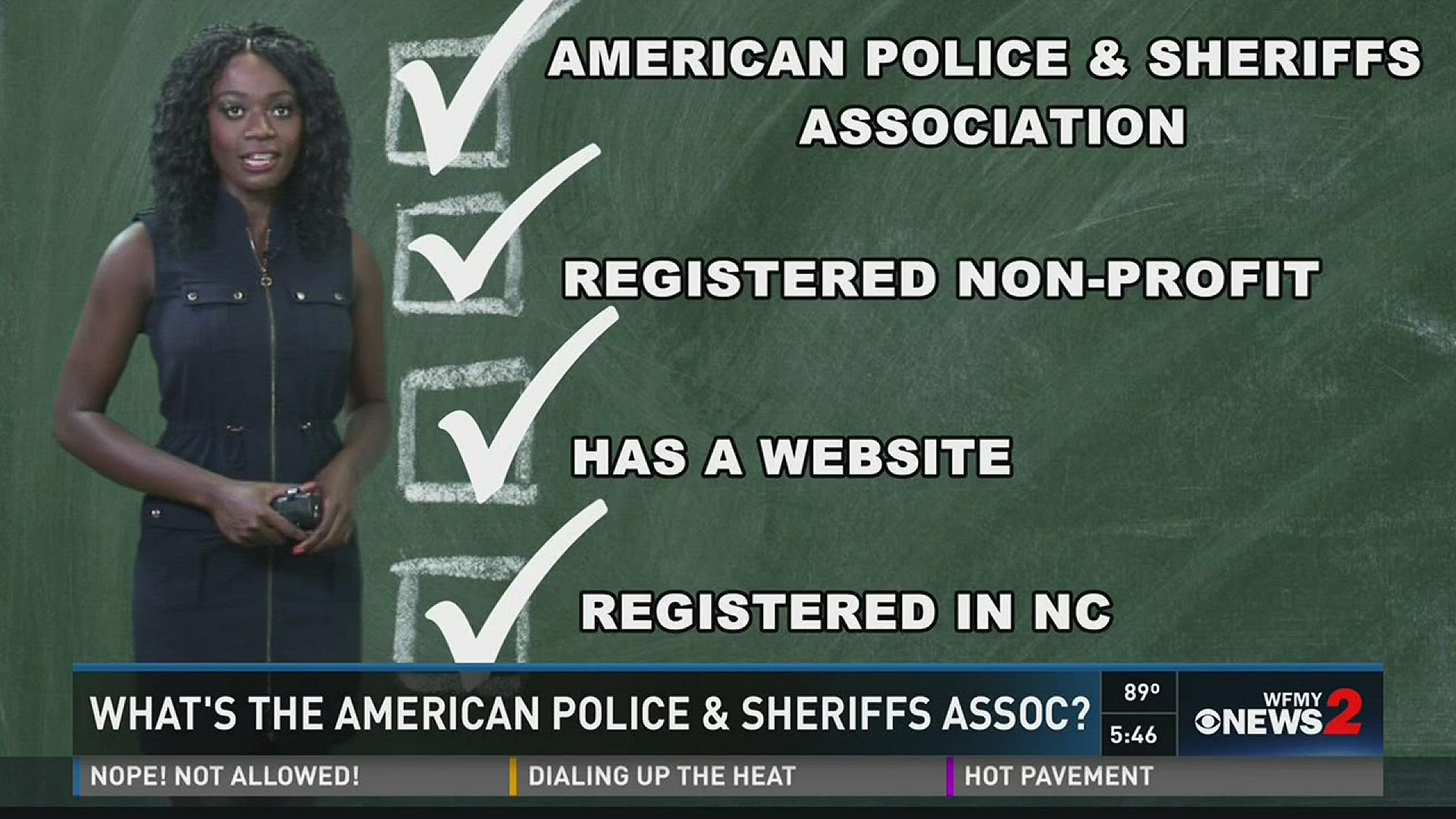GREENSBORO, NC -- With so many people wanting to show support for police officers right now, you might hear “The American Police and Sheriff’s Association (APSA)” and be moved to donate to the cause.
But, details buried in their books about how your donations are spent will have you thinking twice.
The good news:
Yes, the APSA is a registered nonprofit with the IRS.
Yes, it has a website
Yes, it's also registered with the state.
But what raises concern is their financial records.
In 2014, the nonprofit collected more than $1.3 million dollars in donations but only spent about $81,000 on actually helping officers.
That's 94 percent of the money donated not going to help police officers in need.
And, charity rating organizations suggest APSA is barely a charity in the true sense of the word.
In fact, the website CharityWatch.com gives it an F.
“It’s very concerning and it worries me that while people are in such giving spirits right now, because of the tragedies going on right now, that they would be taken advantage of for their kindness of wanting to donate to victims,” said Greensboro Police Department Captain Teresa Biffle.
Biffle says she has never heard of the American Police and Sheriff's Association.
In fact, she was shocked when 2 Wants to Know showed her how the organization spends its money.
Money people donated to help police which is largely being used for salaries and office costs.
“It's just a good idea to know the nonprofits you're working with to be sure as much of your contributions can go to the people who actually need it,” Biffle said.
Just to make sure 2 wants to know got a full picture of this non-profit, we found the APSA registered with the North Carolina Secretary of State's office and in the most recent filings, revealed only 10 percent of 2015 donations were spent on program services.
Paperwork from the Washington Secretary of State's office show the similar numbers, as do documents at charity watchdog site Guidestar.
2 Wants 2 Know reached out to APSA and asked why such a large amount of people’s donations were being used for overhead costs.
Here’s the response from David Kenik, the association’s executive director:
Large charities are sustained by gifts and corporate sponsorships, both have no cost of fundraising. Small charities like our must do our own fundraising which is expensive. Without fundraising, the life-saving training programs that we produce and distribute for free, nationwide, would not exist.We use telemarketing for donations. While expensive, it does not require hundreds of thousands of dollars of upfront costs such as other methods, it guarantees us income immediately and has no financial risk to us whatsoever. No other form of fundraising comes close.
While our fundraising is expensive, how much are officer’s lives worth?
Now that you know about APSA, they might call you for donations under a different name.
According to the Better Business Bureau, here are nine other names the nonprofit will try to tell you to donate to:
Community Fundraisers – telemarketers
National Police & Trooper Association
Disabled Police & Sherriff Foundation
Reserve Police Officers Assoction
International Union of Police Assoc.
Association For Homeless & Disabled Vets
International Union of Police
U.S. Firefighters Association
Breast Cancer Research & Support Fund
--
Stay Connected
Twitter: @ReporterFaith
Facebook: Faith Abubey

